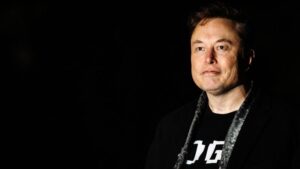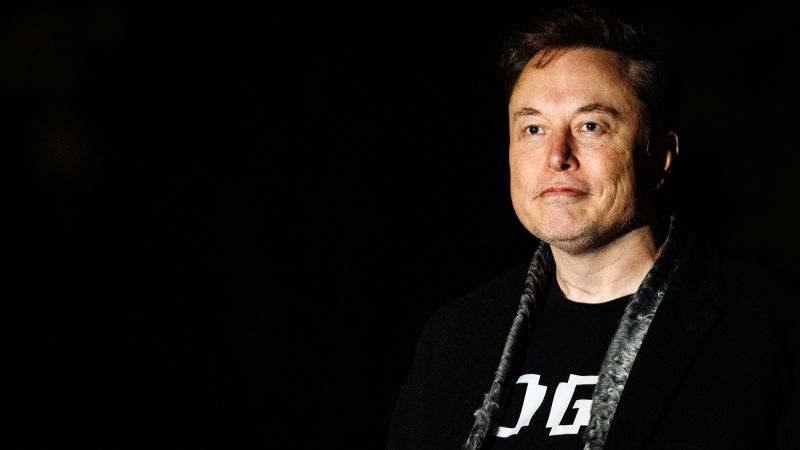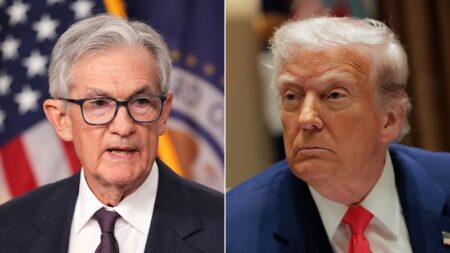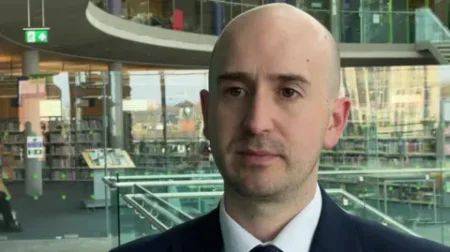Elon Musk, the controversial billionaire known for his significant influence on various industries, recently announced he would be stepping away from the political arena. However, he made a swift return to the conversation just as the Senate was engaged in a heated debate regarding President Donald Trump’s expansive fiscal initiative, referred to as the “Big, Beautiful Bill.” This governmental proposal aimed at reshaping fiscal policies found Musk once again voicing strong opinions about its implications on national finances, showcasing his tendency to involve himself in political discourse through his favored platform, X, formerly known as Twitter.
On a day designated for deliberation and a decisive vote on the legislation, Musk took to X to deliver an unequivocal admonition aimed squarely at Congress members who profess to advocate for reduced government spending yet appeared to paradoxically support a significant increase in the national debt. In a pointed statement, he implored that every congressperson who campaigned on a message of fiscal restraint but subsequently leaned towards expansive spending should feel a sense of shame, emphasizing the weight of their decisions on public trust and electoral outcomes. “They will lose their primary next year if it is the last thing I do on this Earth,” Musk asserted fiercely, hinting at a personal commitment to hold these politicians accountable.
Musk’s opposition to Trump’s fiscal policy bill is not a recent development but rather a continuation of his ongoing critique of governmental spending. In fact, his interactions with Trump have been marked by noticeable tension, culminating in a public confrontation in recent weeks. Musk, rarely one to shy away from proposing bold ideas, even suggested the formation of a new political party, an idea he has circulated publicly prior to this recent phase. The notion of a third party emerged again during the fray of discussions surrounding the controversial spending bill.
In a striking commentary, Musk characterized the current political landscape as one dominated by unified interests. He creatively dubbed this hypothetical government alliance as the “PORKY PIG PARTY,” citing the “insane spending” attached to the debt ceiling hike of a staggering five trillion dollars. In this context, he reiterated his belief that a new political party should emerge that genuinely prioritizes the needs and concerns of the populace, indicating a profound disconnection he perceives between existing governmental structures and the electorate’s expectations.
In terms of actionable measures, Musk seemed to solidify his role as a political influencer by promising financial support to candidates who dare to challenge incumbents in primary elections. This gesture reflects a significant shift within his political engagement strategy, especially as he transitions away from a direct advisory role in the White House. His past political contributions exceeded $275 million, primarily funneled into supporting Trump and associated Republican candidates during the 2024 electoral cycle. However, Musk had recently declared his intention to reduce his political expenditures, claiming to have “done enough” for the time being.
Moreover, records from the Federal Election Commission outline the historical backdrop of Musk’s political donations. His political action committee, America PAC, has had notable financial activity, including the last recorded donations made to two Republican candidates participating in special elections in Florida—Randy Fine and Jimmy Patronis—back in March. This demonstrates Musk’s ongoing financial influence within the political landscape despite his professed withdrawal from active participation.
In summary, Musk remains a potent voice in American politics, adept at using social media as a vehicle for his opinions and actions. His recent remarks about Congress, alongside proposals for a new political alignment, indicate that although he may claim to step back from politics, his engagement and influence are as pronounced as ever. The evolving political landscape continues to be impacted by high-profile figures like Musk, who are not afraid to invoke strong rhetoric and attempt to reshape traditional governmental dynamics.











